The views expressed in our content reflect individual perspectives and do not represent the authoritative views of the Baha'i Faith.
Surely part of the human experience comes from our animal nature—but is that all we are? Do we have a spiritual nature, as well?
The Baha’i teachings clearly describe human qualities that no animals have:
The animal is bereft of ideality—that is to say, it is a captive of the world of nature and not in touch with that which lies within and beyond nature; it is without spiritual susceptibilities, deprived of the attractions of consciousness, unconscious of the world of God and incapable of deviating from the law of nature. It is different with man. Man is possessed of the emanations of consciousness; he has perception, ideality and is capable of discovering the mysteries of the universe. – Abdu’l-Baha, The Promulgation of Universal Peace, pp. 240-241.
No animal can write a poem. No animal can conceptualize this world as a globe orbiting the sun. No animal can imagine the future, and then do something to make that imagined future occur. These attributes emanate from our unique human intelligence, but can’t be defined by intelligence exclusively. Instead, intelligence’s complimentary attribute, free will, helps to distinguish us from the animal.
Contrary to the dehumanized point of view that we are stuck in our behavior, humans are defined entirely by free will, by choice. Not having the high level of instinct the animal does, we have survived by thinking and choosing. We have the ability to make decisions, to set a course of action and see it through, or, if something doesn’t work, we can “change our minds.” Think of that! (You will, because you can.) That ability represents the miracle we hardly ever recognize.
Isn’t this what all the teachings in the Bible are essentially about—and indeed the narratives of all religions? Aren’t free will and choice the essence of the human experience? The freedom found in choosing to reject religion and/or tradition—and in too many cases, ethics and morality—does not demonstrate that humans are animals, or that we follow fixed and unchangeable behavior patterns. Instead, those choices represent an exclusively human activity: the conscious and autonomous choosing between one action or another. In the case of the belief system described above, a cynical choice has been made—to be selfish.
The Baha’i teachings emphasize one vital intellectual and spiritual principle in regard to this question of will and free choice—the independent investigation of truth:
God has not intended man to imitate blindly his fathers and ancestors. He has endowed him with mind, or the faculty of reasoning, by the exercise of which he is to investigate and discover the truth, and that which he finds real and true he must accept. He must not be an imitator or blind follower of any soul. He must not rely implicitly upon the opinion of any man without investigation; nay, each soul must seek intelligently and independently, arriving at a real conclusion and bound only by that reality. – Abdu’l-Baha, The Promulgation of Universal Peace, p. 287.
From a Baha’i perspective, everyone has the privilege and the responsibility to investigate reality as best they can, and then base their beliefs upon what they’ve learned. However, in most cases people don’t investigate very much independently, but simply inherit or borrow the beliefs of other people or traditions. In that respect, our thoughts come from borrowed beliefs and not from our own investigations. That means whatever we believe becomes our reality—but not an authentic one.
So if one chooses to believe the world is a jungle, then it is one. If others do too, then yes, they become mutual enemies in that jungle because of their shared belief in an “all against all” world. Such beliefs then turn into a self-fulfilling prophecy.
Choice happens in altruism, too, with literally millions of examples of humans transcending their basic needs to serve the needs of others. We set up hospitals to care for and cure the sick; we create schools to improve the lives and minds of others; we form thousands of charities; we build houses for others; we take in refugees, immigrants, orphans. We save thousand-year-old trees and dolphins stuck on sandbars. We even fix the mistakes we make, for instance with inventions that clean the plastic out of the oceans we have polluted. We provide for the elderly. We make art, and on millions of occasions we make peace with each other in our daily interactions. We humans choose to do good to one another an inexhaustible number of times each and every day.
Perhaps the most significant proof of all, of our being free to choose and not being stuck with the animal insistence, is the fact that there have been human beings who were willing to sacrifice life itself to defend a principle or belief. Only humans can make the decision that a moral principle has so much importance that life itself is worth sacrificing to uphold it. This potential for selflessness may furnish the ultimate proof that we are not simply animals.
Consider it for a moment: countless human beings sacrifice their lives for ideals; soldiers die fighting tyranny; journalists risk their lives in peace and in war to obtain the truth; everyday good people dedicate themselves to the service of others by doing their jobs, even while knowing they are not being paid at all fairly. Firefighters run into burning towers never to return, researchers dedicate their lives to finding cures, poor mothers weave cloth until their fingers bleed so their children can attend school. A woman sat in the front of a segregated bus and went to jail to demand her race’s equality—and many women stand in the front lines of protest marches demanding rights for all women. The list is endless of people making the choice to live beyond simple self-interest.
So then let’s return then to the question of why we haven’t achieved a just world. Why haven’t we turned this so-called jungle into the rose garden it could be?
Having established that we function exclusively through intelligence and choice, which makes us human beings, the argument that we can’t change our “nature” because we are intelligent animals and actually have no free will, is obviously, patently untrue. Because people don’t do something, or won’t do something, or because that something is hard to do, doesn’t make it any less real. Can we allow weakness of will to determine the quality of our world or how we define ourselves? We do have choices as to our behavior. It is de-humanizing to think we actually can’t change. The human world is completely defined by the ability to choose. So R. Buckminster Fuller was right—it is a choice of will and not a lack of capacity that keeps the world from real peace, real equality, real unity.
To hold to the idea that humans have no choice and can’t change seems to come from a kind of left-over adolescence—more of an excuse than a true rationale. Unfortunately, for those who cling to this position, like those who try to cling to youth, the spirit in the world keeps maturing. The inevitability of our potential grows every day, exerting more and more pressure for true justice, for increasing the well-being of the entire global family. Soon, perhaps quite soon, we are all going to have to grow up and out of this immaturity. We now face a stark choice: mature and unify, or stay stuck in our old ways, which will inevitably lead to our extinction.
While you think about that choice, contemplate this observation from Corinthians 13:11: “When I was a child, I spake as a child, I understood as a child, I thought as a child: but when I became a man, I put away childish things,” and this one from the Baha’i teachings:
A new chapter in the life of the planet has been opened. Humanity has attained its maturity, and the race consciousness has awakened to the fact that it must put away the childish things which seemed necessary in the day of the “survival of the fittest.” – Abdu’l-Baha, Divine Philosophy, pp. 12-13.


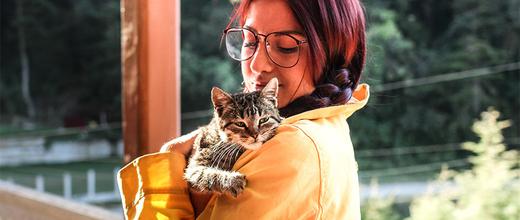




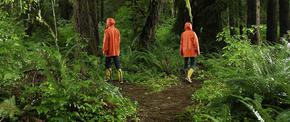
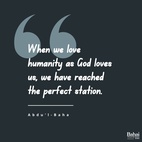
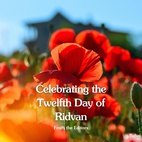
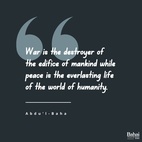
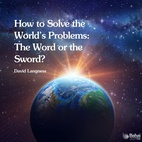
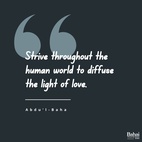
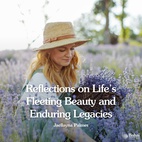
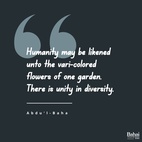
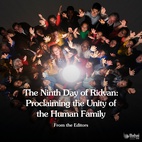

Comments
Sign in or create an account
Continue with Facebookor